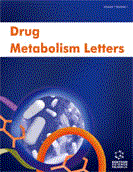Abstract
Folate (Vitamin B9, Folic acid, folinic acid, folacin, pteroyglutamic acid) is essential for life-sustaining processes of DNA synthesis, replication, and repair which are naturally present in common foods such as peas, oranges, broccoli, and whole-wheat products. Folate levels have been associated with birth defects, cardiovascular disease, and many other important healthcare issues, which has resulted in government-mandated food fortification to deliver minimum levels of intake. Despite this one-size-fits-all recommendation by governmental regulatory bodies, studies suggest that a genetic predisposition may exist within as much as 67% (combining both the CT and TT alleles) of the population that causes a metabolic folate deficiency. Thus, genetic factors may play an important role in folate levels and metabolism. A substantial body of scientific evidence supports the importance of folate, genes associated with folate, genes associated with anti-folate therapeutics, and thereby a convergence in nutritional genetics or nutrigenetics. This review will comment on the substantial body of scientific evidence demonstrating the relevance for nutrigenetic measurements to guide dietary folate intake and nutritional supplementation with folic acid.
Keywords: neural tube defect, cardiovascular disease (CVD), methylenetetrahydrofolate reductase, methotrexate, MTHFR C677T genetic variant
 29
29














